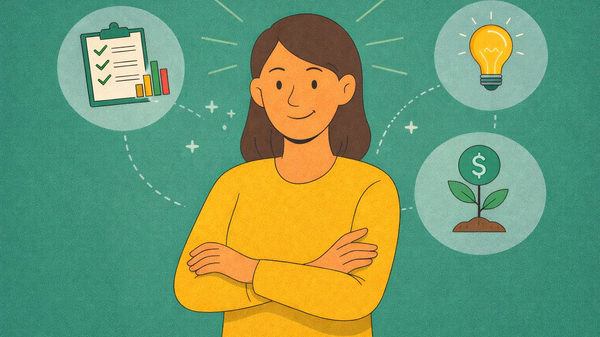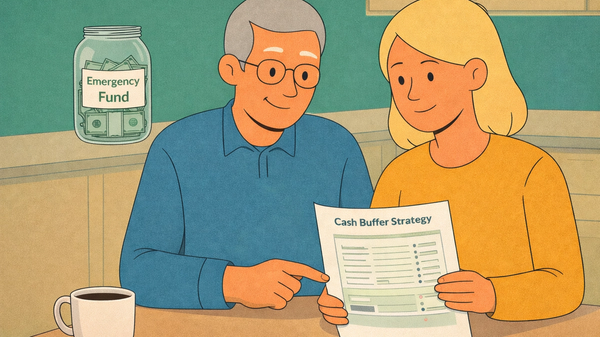Highlights:
- Home insurance claims have increased 406% thanks to extreme weather events like fires, hail storms and floods
- The exact questions to ask your insurance agent to make sure your home is protected
- What to do if you can’t get enough coverage
No doubt about it: climate change is having destructive effects on Canada.
The question you need to be asking yourself is whether you have enough - and the right - home insurance to protect one of your biggest investments.
In just 4 weeks, Canadians made a record number of home insurance claims - thanks to flooding in Ontario and Quebec, the Jasper wildfire, and Calgary hailstorm.
According to the Insurance Bureau of Canada, there have been “around 228,000 claims, a 406 percent increase compared with the previous 20-year average.”
Just in my small community alone, there have been hundreds of claims. Neighbors a few houses down are gutting their entire basement thanks to flooding.
It’s heart wrenching - so let’s do what we can to protect ourselves!
CBC recommends building a good relationship with your home insurance agent, understanding what you’re covered for, and seeing if your policy should be updated to provide the protection you need.
Questions to ask your home insurance representative:
“Do I have enough coverage for my home’s value?”
If you don’t have enough coverage to rebuild your home at today’s prices, you could pay a lot out of pocket.
I totally get wanting to save on premiums - but underestimating your replacement value could leave you stuck and unable to replace your home (and all your belongings) if the ‘worst case scenario’ happens.
In some cases, you might be able to get optional coverage like “Guaranteed replacement cost” so you can replace your home, even if the cost is beyond your policy’s limits.
“Am I covered for natural disasters?”
Of course we can’t foresee everything that could happen.
But if you know the risks in your area, it’s smart to get coverage.
Standard policies typically don’t cover things like floods, earthquakes, hurricanes, or wildfires. Without specialized coverage, you might be underinsured.
“Will I be able to replace my personal belongings?”
We all have stuff. Stuff is expensive.
And as time goes on, the more (and higher quality, more expensive) stuff you acquire.
You’ll want to make sure that you’ll be able to replace what you’ve lost - whether it’s your surround sound system, work-from-home tech setup, treadmill, or 1000 thread-count Egyptian cotton sheets.
“Is my policy based on cash value or replacement costs?”
This can make a huge difference.
If your policy is based on “Actual Cash Value” (ACV), it only pays the depreciated value of your belongings - not the full cost to replace them.
Sometimes it makes sense to choose actual cash value, like when items are just too old to be worth insuring for their full replacement value.
Other times you’ll want to make sure that you’ll be able to get it replaced - especially considering that inflation has driven up the cost of, well, everything.
A good home insurance agent will be able to help you identify which option is best for your needs!
“Do I have coverage for additional living expenses?”
Say you have to live in a hotel while your house is under repair.
Those costs add up fast - between the hotel, sending out your laundry, eating at restaurants, and everything else.
Making sure you have your additional living expenses (ALE) covered will make this crummy situation a little more enjoyable - or at least, less expensive.
“Am I covered for sewer backups?”
Now this is a crappy situation.
There are so many people in my town dealing with the indescribable nastiness of having their basements fill up with sewage backup. Let me tell you, I’ve unlocked a new fear.
Standard policies typically don’t cover all types of water damage, like sewer backups or sump pump failure. If this is happening in your area, it’s worth looking into. (Trust me.)
What if I can’t get adequate home insurance coverage?
Sometimes you can’t even get the amount of protection you need, even if you’re willing to pay extra for it.
If you feel like your home insurance policy isn’t going to make the cut, you can top up your policy yourself by setting up a ‘self-insurance policy’.
This is an extension of your emergency fund.
For example, friends of mine who live in a flood zone can only get 10K of coverage for their fully finished basement. That’s nothing.
So they have money set aside for the basement so it’s ready to go if they need it.
Where should you keep your self-insurance policy money?
A high-interest savings account (HISA) is always a good bet.
Another option is a high-interest savings ETF like CASH.TO.
It’s not as flexible as a HISA since you can only get your money out while the stock market is open (9:30 AM - 4 PM Eastern Time), but it may get higher returns than your savings account.
Increase your coverage, increase your peace of mind
Extreme weather events are getting more common, and more expensive.
The Ontario flooding and Calgary hail storm combined generated $3.1 billion in insurance claims.
The federal government is looking to launch the first national flood insurance program, which is great news - but like most government programs, it’s worth not planning to rely on it completely.
Now that you know how to protect yourself, please share with family members and friends so they can have adequate protection too.


